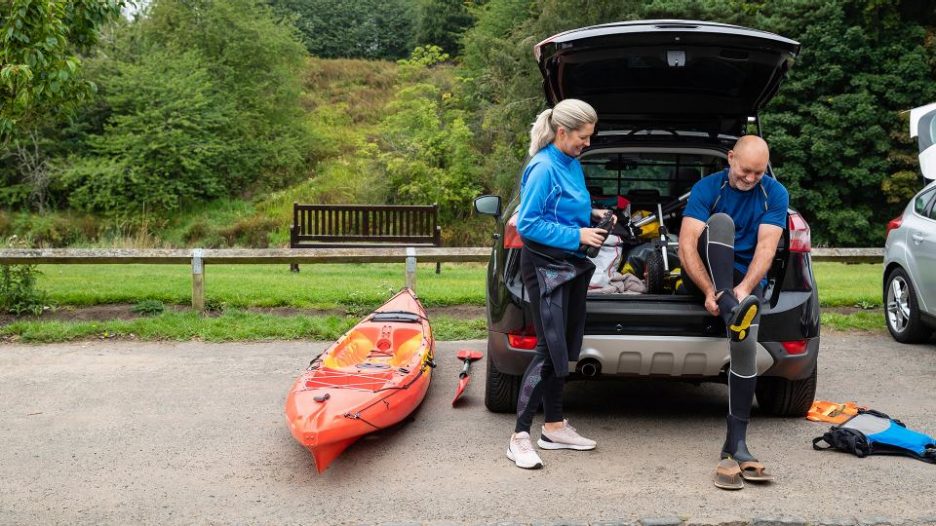On average, people are living longer lives. Across men and women, a 50-year-old in 2023 will on average live for a further 36 years.1 A longer life can be an exciting prospect. However, in our ‘Second 50’ research of 900 workers and 100 retirees, we found that 82% were somewhat or very concerned about their health in retirement.2
With declining health a worry for many, it’s important to keep both our brain and body active as we grow older. Doing so could help you age well and make the most of the opportunities a longer life can bring. From sleeping better to moving more, here are some low-cost ways to boost your mental and physical health.
Free ways to keep physically fit
We all know daily exercise is good for our physical health – it can lower our risk of various health conditions including stroke, obesity, diabetes and cancer. But it also has brain-boosting benefits, including reducing stress and anxiety and increasing self-esteem.
Fortunately, staying active doesn’t mean you need to sign up for an expensive gym membership or hire a personal trainer. For example, park runs are a scenic way of clocking some cardio – find your nearest park run on their website. Many bodyweight exercises, such as push-ups and squats, can be done in the comfort of your own living room. Low-impact activities such as gardening can also be a great form of exercise, especially if you have physical limitations.
If you have a busy schedule, try to fit small spells of exercise into your daily routine. Consider taking the stairs instead of the lift if you can, or doing some quick exercises at your desk. Strive to stay active throughout the day, especially if you’re in a job that involves sitting for long hours.
Granted, some of us may lack the motivation to keep fit. The key to making exercise a lifelong habit is finding an approach that truly inspires and motivates you. Gamifying your exercise might be a start. For example, set a daily step target and track your progress over time using apps such as the free Steps App. Having a goal to work towards – such as completing a 5k or 10k – might also boost your motivation. And working out with friends can increase your accountability, improving your fitness over the long run.
Consider your diet
A balanced diet – one that includes different foods from the five main food groups – is key to staying healthy. The good news is that it’s entirely possible to eat well on a budget.
For starters, you could try eating more plant-based foods, which can benefit both your health and your wallet. Research shows that vegetarian and vegan diets tend to be the most affordable. What’s more, according to the Netflix series ‘Live to 100: Secrets of the Blue Zones’, people leading longer lives tend to follow a plant-based diet.
Other ways to eat well on a budget include pre-planning your meals and making a shopping list, which can lower your grocery bill. Also, opt for healthy, affordable foods where possible, such as tinned or frozen fish, beans and lentils, tofu and grains. For more ideas, check out article 9 money saving food tips to help you live sustainably.

Improve your sleep
Sleep has a large impact on our mental and physical health. For instance, poor sleep can affect your focus, memory and concentration. It can also make you more likely to suffer from colds and infections. Yet, 1 in 5 people in the UK say they aren’t getting enough sleep every night.3
Quality sleep starts with good sleep hygiene – which doesn’t have to cost a thing. Experts say we should ‘Value, Prioritise, Personalise, Trust, and Protect’ our sleep.4 That is, understand its importance and make it a central part of our lives. Tailor it to our needs through trial and error, and trust that we’re able to achieve good sleep through our natural daily rhythm. Finally, we need to protect our sleep by reducing the factors that can disrupt our sleep, such as caffeine and screen time. One example of how to do this may be to disconnect your devices and wind down through calming activities like reading or meditation.
Creating a suitable sleep environment can also be beneficial. Keep your bedroom dark using blackout curtains or blinds, and ensure it is cool and well-ventilated for optimal shut-eye.
Maintain social ties
Having an active social life has a positive effect on your overall wellbeing. Studies show that people with strong social bonds – both close social circles and extended groups – report lower anxiety and depression. Many low-cost social activities can also boost your wellbeing. For example, joining a book club can help keep you sharp, while group art classes can boost your creativity. If you’re unsure about joining a group or club, reach out to your local community who might be able to find something better suited for you.
Our research also found that many people want to continue working past the standard retirement age to keep their brains mentally active.2 Planning an active social calendar can achieve this too, without the potential stress that can come with work.
Doing what’s right for you
Good physical and mental health doesn’t always have to come at a price. By making smart lifestyle choices and adopting simple habits, you could benefit from a longer, healthier and happier life. Remember, the journey to better health is a personal one. Finding what works best for you is key to creating a sustainable and fulfilling routine.
- Life expectancy calculator. Life expectancy of a 50 year-old male is a further 34 years and life expectancy of a 50 year-old female is a further 37 years, an average of 36 years. Data source, Office for National Statistics, January 2022.
- The Second 50 – navigating a multi-stage life. Data Source, Aegon, 900 workers and 100 retirees in the UK, conducted in December 2022 and July 2023.
- Sleep and mental health. Data source, Mental Health UK, accessed December 2023.
- The ‘5 principles’ of good sleep health. Data source, Journal of Sleep Research Volume 31, Issue 3, June 2022. Wiley Online Library. Article first published in October 2021.
